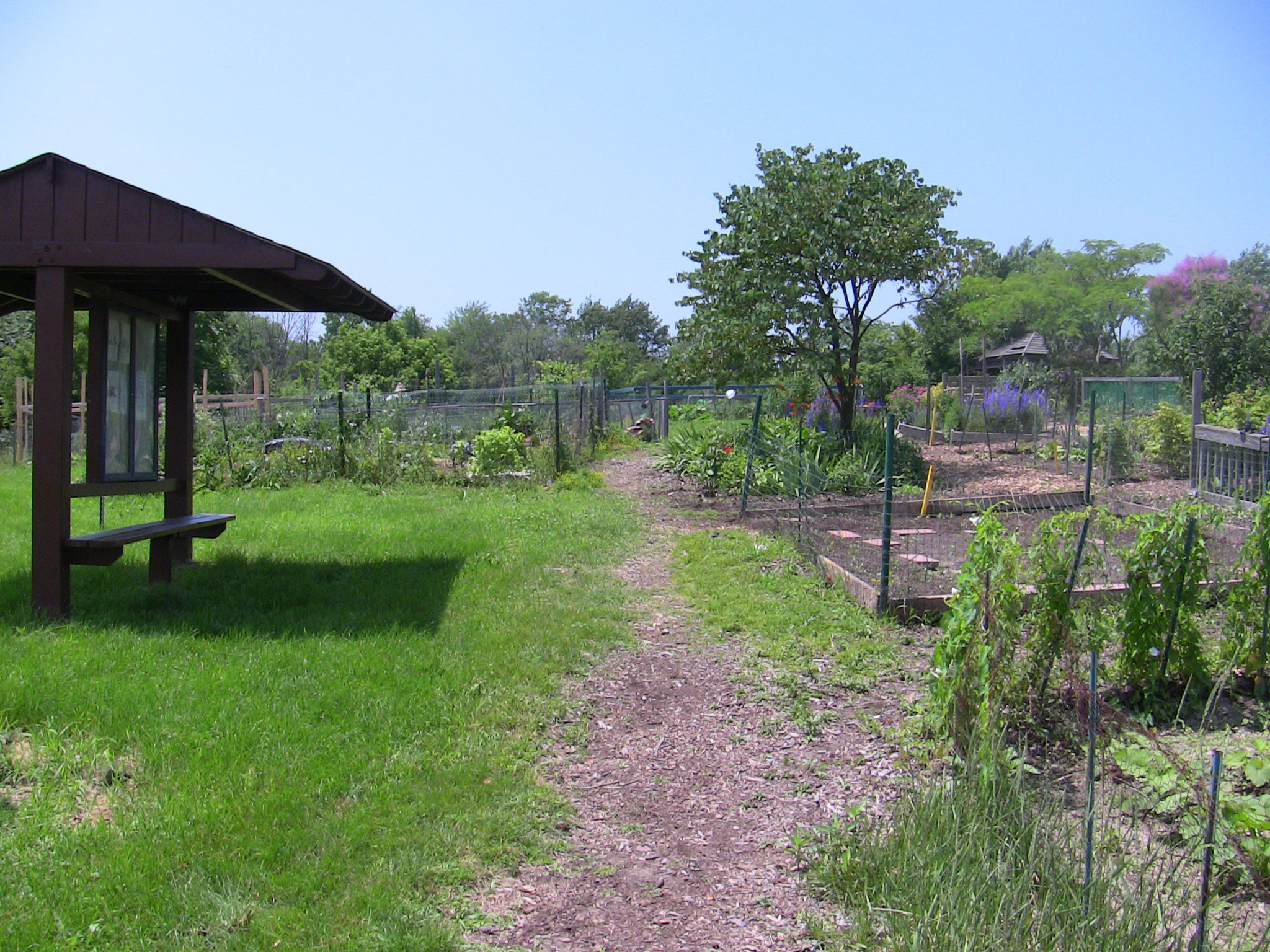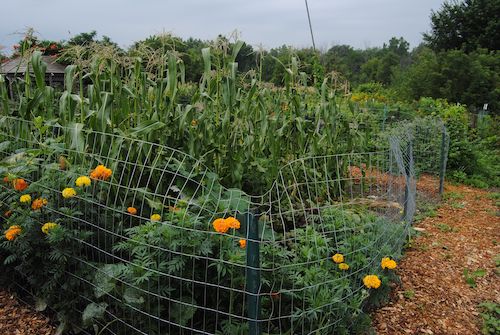Community Organic Garden
 The Environmental Interpretive Center maintains a 1-acre Community Organic Garden (COG) on a hill behind the Grounds Building of UM-Dearborn (View map) and bordered on its eastern side by the Rouge River Gateway Trail. While the Garden has existed at its present location since the mid-1990s, UM-Dearborn first established an organic garden on its campus in 1970 through the efforts of the former Dearborn Naturalist Association, a University-sponsored student organization.
The Environmental Interpretive Center maintains a 1-acre Community Organic Garden (COG) on a hill behind the Grounds Building of UM-Dearborn (View map) and bordered on its eastern side by the Rouge River Gateway Trail. While the Garden has existed at its present location since the mid-1990s, UM-Dearborn first established an organic garden on its campus in 1970 through the efforts of the former Dearborn Naturalist Association, a University-sponsored student organization.
The present Garden consists of nearly fifty 300+ square-foot garden plots available for rent and a Pollinator & Enabling Garden with raised garden beds accessible for people in wheelchairs or with other physical limitations. The Pollinator & Enabling Garden was made possible with a donation from the Detroit Garden Club in the late 1990s. It is maintained by members of the Dearborn Garden Club.
Individual plots in the Garden are available for lease on a yearly basis for a nominal fee. Such fees are used to purchase equipment and supplies for the gardeners, or for general maintenance of sheds, compost bins, benches, and other items in the Garden.
Returning gardeners must fill out a plot rental application by March 31 and pay the $40 rental fee by April 30. New gardeners may request to be notified if plots become available by filling out the plot rental application. Please read and follow the Community Organic Garden rules and regulations.
Please send inquiries relating to any matters at the garden to Dale Browne at dsbrowne@umich.edu.
 Gardening and Land-use Policy
Gardening and Land-use Policy
The Community Organic Garden has a formal policy regarding gardening and land-use practices. In accordance with federal and state regulations regarding the production of organic produce, gardeners are prohibited from using synthetic pesticides or fertilizers. Also, they are forbidden from growing woody perennials, such as trees or shrubs, and they are not allowed to grow any plants recognized as invasive species in Michigan. Gardeners are encouraged to employ best management organic practices, such as composting, mulching, rotating crops, and using cover crops and polycultures. In June 2020, the Garden was awarded Michigan Agriculture and Environmental Assurance Program (MAEAP) certification in recognition of its stewardship via soil and water management and conservation efforts.
Children's Garden Program
During the summer, children 6-8 years of age can participate in the Children's Garden Program; where young gardeners learn how to tend vegetables and flowers in their own garden plots. They may also participate in garden games and crafts, as well as small science experiments, as they gain useful gardening skills.






